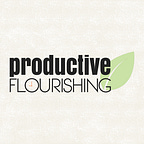Topics We Explored:
How to access flow and empathy during times of crisis
How we can learn from the innovation over the pandemic and keep it as we move forward
Rational optimism and radical humanism
How we cooperate at scale and speed
How solving the world’s problems requires empathy for all beings
Links and Resources Mentioned in This Episode:
About Steven Kotler:
Steven Kotler is a New York Times bestselling author, an award-winning journalist, and founder and executive director of the Flow Research Collective. He’s the author of many nonfiction bestsellers, including The Art of Impossible, Tomorrowland, and The Rise of Superman, as well as thriller The Devil’s Dictionary.
Thanks for Listening!
Subscribe to Productive Flourishing on Apple Podcasts to get all the latest episodes delivered straight to your preferred mobile device. This is the perfect option for listening to the show in the car, on the subway, or while you’re working out. Plus, you won’t have to fuss with figuring out how you’re going to listen.
Episode Timestamps
[3:47] Steven talks about starting his career in journalism and expanding his interest in disruptive technology and how people get and stay in their flow.
[6:50] Steven talks about his thoughts on being a rational optimist, and what we mean when we say radical humanism.
[11:12] How did COVID-19 disrupt the way we work and live when it comes to both AI and material revolution and how can we embrace these changes moving forward?
[26:30] The four best tools to manicure our nervous systems are gratitude, mindfulness, exercise, and regular access to flow. It is imperative that we take advantage of these during a crisis.
[28:44] How do we cooperate at scale at speed without a war driving us forward?
[30:01] Steven talks about his book, The Devil’s Dictionary.
[43:25] Are we going to use these technologies to fix the globally broken supply chain? That’s an open question.
[46:53] Steve explains how we need different models for sharing value at scale than what we currently have.
[51:02] In order to solve world problems, we need empathy for all beings, plants, animals, and ecosystems.
[52:00] If you’re interested in creativity and innovation, and entrepreneurship, you need to tamp down the brain’s negativity bias and make room for new information. The easiest way to do that is through empathy.













